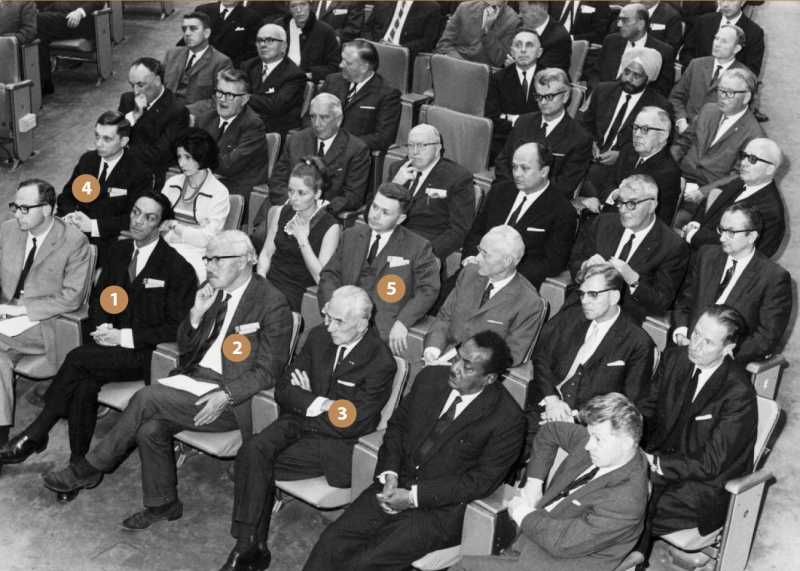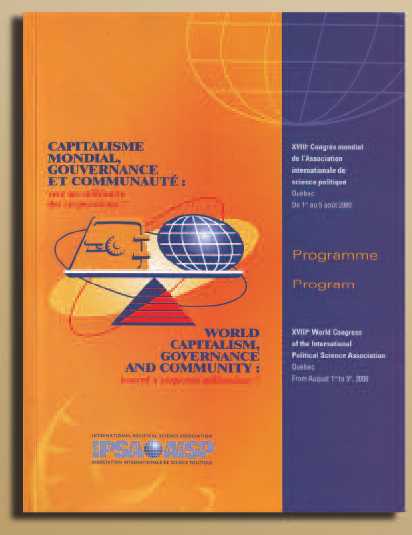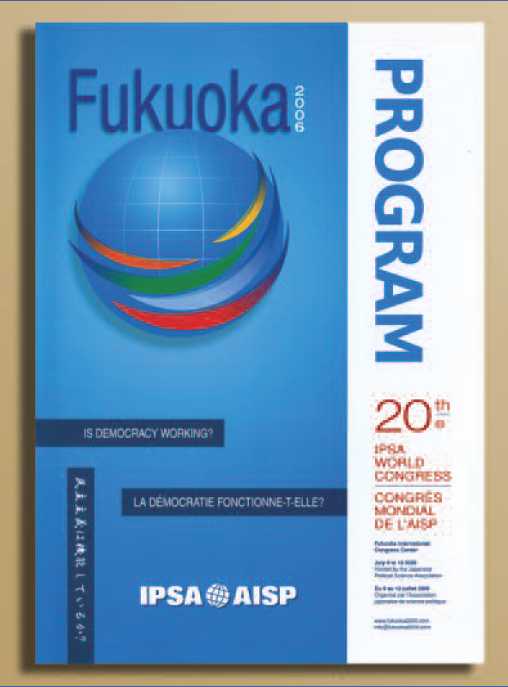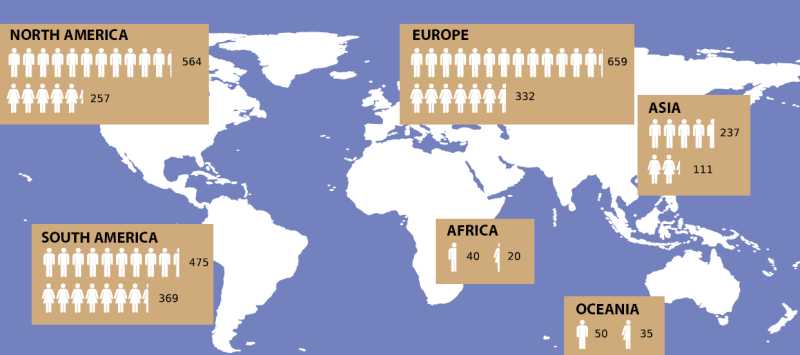
How political science will develop as our
Association expands its influence to local
associations in all areas of the world,
I cannot say….
Quincy Wright
First president of the IPSA in his opening
address to the Zurich Congress,
4 September 1950
Areal conclusion to this partial (in both senses of the word) depiction of the history of the International Political Science Association is not easy to write and should ideally await a definitive account and clearer prospects for the future. The best we can offer now are some subjective conclusions and conjectures.
It would be too much to say that the IPSA has achieved the goals originally set for it by the United Nations Educational, Scientific and Cultural Organization. Together with other international associations, it was given the task of reducing international tension, improving the operations of political institutions and helping civilization flourish. Although the Association has fostered dialogue between political scientists of different nationalities across political boundaries, we would be hard put to credit it with any responsibility for such geopolitical events as the thaw in the Cold War.
 However, the IPSA has undeniably geared its activities to supporting its constitutional aim of “[promoting] the advancement of political science throughout the world,” and it is mainly due to the gradual consolidation of its institutions that it has been able to progress towards fulfilling this goal. In organizational terms, since its inception the IPSA has been able to acquire stable political structures and adapt their operations to the times. The Association has also managed to develop an administrative base that can support more diversified activities. Consequently, it is both flexible enough to be innovative in its undertakings and strong enough carry them out.
However, the IPSA has undeniably geared its activities to supporting its constitutional aim of “[promoting] the advancement of political science throughout the world,” and it is mainly due to the gradual consolidation of its institutions that it has been able to progress towards fulfilling this goal. In organizational terms, since its inception the IPSA has been able to acquire stable political structures and adapt their operations to the times. The Association has also managed to develop an administrative base that can support more diversified activities. Consequently, it is both flexible enough to be innovative in its undertakings and strong enough carry them out.
The multiplicity and variety of these initiatives bear ample testimony to the role the Association has played in the intellectual advancement of the discipline. Although we cannot measure their impact precisely, the Congresses, Round Tables, Symposiums, the Review, the Abstracts, and the books have each in their own way helped create the intellectual landscape of the political science we know today.
Without doubt, though, the IPSA’s most important contribution to the advancement of the discipline has been social rather than purely intellectual. If an international community (in the Mertonian sense) of political scientists now exists, the IPSA has certainly helped build it. It is has not been alone in this work. The European Consortium for Political Research, the International Studies Associations, and even the American Political Science Association have all had a part in bringing impressive numbers of political scientists together from every part of the globe. It is therefore difficult to attribute the development of transnational research networks to any particular institution. But the successes the Association has garnered over the first sixty years of its existence are so many bricks it has laid to build the structure that all these organizations share.
Its co ntributions sometimes stemmed from bold decisions it made in particular cases. For example, it built bridges between East and West in a year marked by rising political tension between Moscow and Washington. Similarly, it disregarded financial considerations and held Congresses in Rio de Janeiro and Durban to build bridges between North and South. However, its contributions have also been the result of longer-term programs and dynamics. First and foremost among these were the efforts it focused on membership; through active and consistent canvassing, the Association managed to take in enough collective members to claim almost universal geographic coverage. Its publication, the International Political Science Abstracts, is an original means for disseminating knowledge produced by the discipline across linguistic barriers. Through the Research Committees, the IPSA has formed and sustained multinational research groups by providing logistic and financial support, and it has provided opportunities for regular international meetings through its Congresses, Round Tables, and Symposiums.
ntributions sometimes stemmed from bold decisions it made in particular cases. For example, it built bridges between East and West in a year marked by rising political tension between Moscow and Washington. Similarly, it disregarded financial considerations and held Congresses in Rio de Janeiro and Durban to build bridges between North and South. However, its contributions have also been the result of longer-term programs and dynamics. First and foremost among these were the efforts it focused on membership; through active and consistent canvassing, the Association managed to take in enough collective members to claim almost universal geographic coverage. Its publication, the International Political Science Abstracts, is an original means for disseminating knowledge produced by the discipline across linguistic barriers. Through the Research Committees, the IPSA has formed and sustained multinational research groups by providing logistic and financial support, and it has provided opportunities for regular international meetings through its Congresses, Round Tables, and Symposiums.
Looking to the future, we can offer only the barest outline of the challenges that the IPSA must yet take up in cooperation with other national and international political science associations. Despite its successes, some of the issues that were identified sixty years ago are still pertinent today, such as the questions about methods and teaching that were deemed priorities in the late 1940s. The exponential growth of methodological and theoretical approaches and the renewal in terms of traditional pedagogical methods make it perhaps more vital than ever to maintain the dialogue between the different schools that comprise contemporary political science. Nor has the constitutional mission to promote the discipline on all five continents been accomplished. Too many countries, including even such large ones as China, are still outside the IPSA fold. To bring them in, the Association will no doubt have to make use of what has become its trademark: its ability to combine traditions and strong institutional foundations with bold political action.












